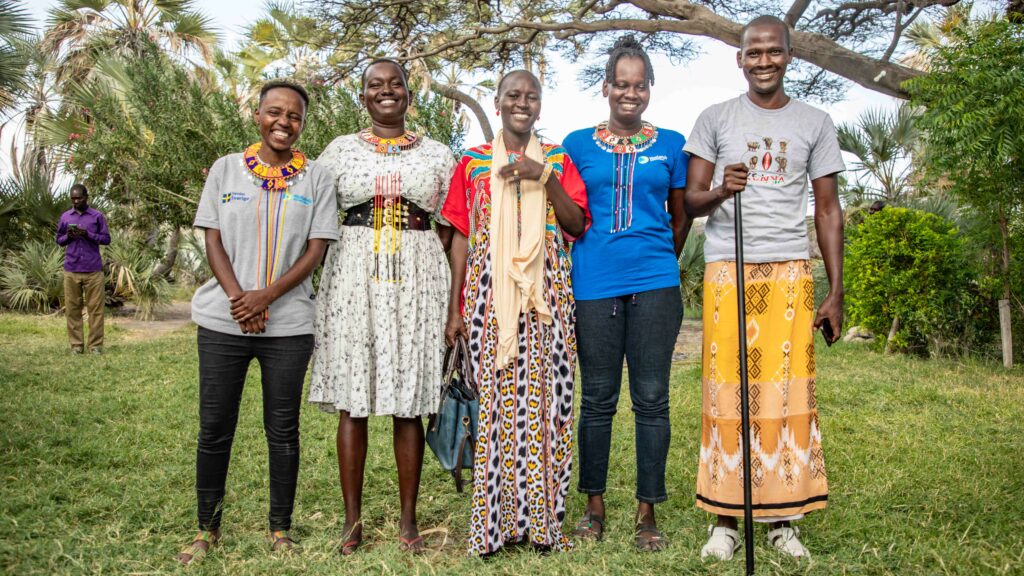
World Water Week: healthy wetlands for water resilience and peace
-
Water
Only 0.3% of all water available on our blue planet is fresh and usable by humans and the finite amount we have is under increasing pressure from a growing population and climate change. Erratic rainfall patterns have led to more extreme weather events. This year, countries across South Asia and South America were hit by some of the most intense and devastating floods, impacting millions of people. Millions more face hunger as droughts continue to sweep across Africa. Concurrently, incidents of water-related violence have more than doubled in the past 10 years, and water scarcity is predicted to remain a primary cause of displacement in the future.
Wetlands like rivers, lakes and peatlands supply nearly all of the world’s freshwater and play a crucial role in water purification, storage, flood control, and groundwater recharge. Physical, biological, and chemical processes (like through sedimentation, microorganisms, and sunlight) in rivers help filter pollutants from water. Lakes act as natural reservoirs, storing water from streams, and precipitation. Peatlands, on the other hand, act like sponges – absorbing excess water during floods, and releasing it slowly during droughts. In fact, wetlands are so central to the water cycle on earth that a world without wetlands would be a world without freshwater.

Unfortunately, we have lost 35% of the world’s wetlands in the last 50 years. The 4 D’s – dams, dykes, drains, and deforestation – have broken crucial water connectivity across landscapes. The degradation of wetlands is a critical issue that exacerbates the global water crisis and poses significant threats to peace and stability. By recognizing the interconnectedness of these challenges, we can develop comprehensive strategies to protect wetlands, ensure water security, and promote global peace.
Wetlands International has several large-scale programs that integrate improved wetland management, indigenous conservation practices, and conflict resolution such as Water, Peace and Security, Wetlands 4 Resilience, and Source to Sea.
The Water, Peace, and Security partnership (WPS), of which Wetlands International is a member, is a consortium of organizations working towards the peaceful management of natural resources. WPS helps stakeholders identify and understand water-related security risks and undertake timely, informed, and inclusive action for conflict prevention and mitigation. The partnership uses cutting-edge technology such as big data, artificial intelligence, remote sensing, and human responses modelling to increase awareness and inform policymaking in water-stressed places like Mali, Ethiopia, Iraq, and Kenya.
Wetlands 4 Resilience (W4R) aims to influence policies and investments across countries, institutions, and sectors towards the regeneration of wetland landscapes. Specifically, we are filling the current knowledge and capacity gap on addressing wetlands and water resiliency in landscape regeneration processes, by designing and sharing tested and accessible approaches.
Source to Sea improves the conservation status of high-value wetlands in the Rift Valley and along the East Africa mangrove coast for the benefit of community livelihoods, biodiversity, and climate-resilient economies. This is done by exchanging knowledge (making linkages between indigenous and scientific knowledge) and disseminating data on wetland status and distribution, biodiversity and socio-economic values, training, and capacity building of stakeholders, supporting local and regional projects and development of integrated management plans at country and ecoregional levels.

We know that nature-based solutions, such as wetlands, can improve water quality and reduce the need for energy-intensive water treatment. We also know that climate change and its impacts can be integrated into peacebuilding efforts by recognizing both climate change and environmental degradation as drivers of potential conflicts, considering their impact on desertification, land degradation, and water and food scarcity. Wetland landscape regeneration especially provides an essential element of water cooperation for peace and security, critical for the long-term resilience of countries and communities with shared water resources.
The path forward is not easy but the time to act is now. Water and wetlands do not adhere to political boundaries (in fact, 60% of the world’s freshwater is transboundary), making international cooperation crucial in managing water resources and protecting wetlands. Agreements and treaties that promote shared water management and wetland conservation can help prevent conflicts and ensure sustainable water use.
Join Wetlands International at World Water Week, where we will share our experiences and work on concrete solutions towards water cooperation, for peace and security.

